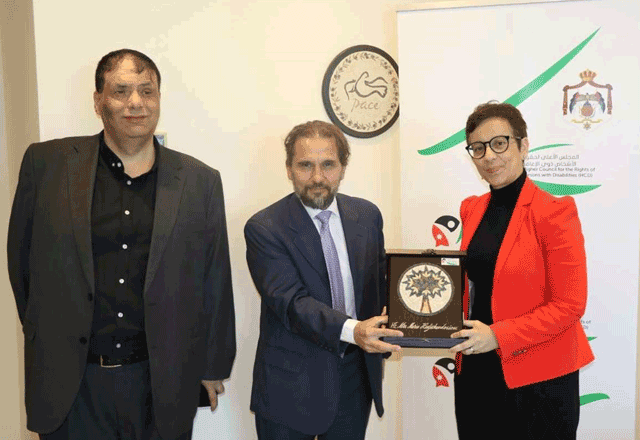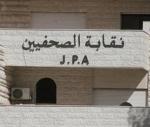You are here
Jordan embarks on deinstitutionalisation of persons with disabilities
By Bahaa Al Deen Al Nawas - Nov 15,2019 - Last updated at Nov 15,2019
AMMAN — Under the patronage of HH Mired Raad, president of the Higher Council for the Rights of Persons with Disabilities (HCD), the Ministry of Social Development and the council in Amman on Thursday launched the National Strategy for the Deinstitutionalisation of Persons with Disabilities.
The strategy is in line with the provisions of the Law on the Rights of Persons with Disabilities, which stipulates that the Social Development Ministry, in coordination with the HCD, develop a national and comprehensive action plan, Minister of Social Development Basma Ishaqat said during her address at the ceremony.
The plan, which aims to end institutionalisation and transform the residential care system in the Kingdom into an “inclusive system” through making Jordan’s service delivery infrastructure accessible, is set to be implemented within 10 years, Ishaqat said.
The plan also seeks to provide “reasonable accommodation” and the necessary prerequisites for the independent living of people with disabilities, all of which enable the realisation of an inclusive society that embraces diversity and difference.
She emphasised that people with disabilities must no longer live in segregated institutions, deprived of their right to live independently within the community.
In his address during the launch ceremony, Prince Mired stressed the importance of the collaboration between the HCD and the ministry in implementing the strategy’s components.
He noted that the partnership reflects the political will to dismantle restrictive and isolating environments, transforming them into surroundings that are inclusive of people with disabilities.
This is done by investing in the available resources and expertise necessary to enable people with disabilities to live independently, with freedom of choice, the prince said.
Prince Mired commended the efforts of the ministry’s and the council’s staff in developing the strategy, creating a road map for transforming residential services into an inclusive system.
The Prince also commended the technical support provided by Lumos Foundation, and the support of the European Union in placing the issue of independent living and deinstitutionalisation at the forefront of their agenda.
The Minister of Social Development underscored the fact that implementing the strategy will not cause the staff in residential institutions any difficulties, as they will be “active participants” in the process of developing inclusive day-care services, within the strategy’s designated timeframe.
In his speech, Lumos Foundation’s Interim CEO Sir Roger Singleton praised the work of the ministry and the council, saying: “The Kingdom is now embarking on a 10-year journey, which promises to bring immense positive change for approximately 1,500 people who live in institutions — but not just for these people, for their families and others.”
“Jordan is a regional pioneer in transforming care for persons with disabilities; it was the first Arab state to ratify the UN convention on the rights of persons with disabilities...,” he added.
Michaela Ivanova, a young Bulgarian advocate with disabilities, who lived for part of her life in a residential institution in Bulgaria, spoke at the launch of her country’s experience in deinstitutionalisation, indicating that 124 residential institutions were closed down in 10 years.
She added that now, there are “no residential institutions for people with disabilities” in Bulgaria.
The two-hour event also included a presentation on the components of the strategy.
The Bulgarian experience in deinstitutionalisation was also showcased, while testimonials by parents of people with disabilities, who have promoted and lived out the principles and processes of independent living in Jordan, were also shared.
Related Articles
AMMAN — HH Prince Mired, president of the Higher Council for the Rights of Persons with Disabilities (HCD), on Sunday met with EU Ambassador
AMMAN — The Higher Council for the Affairs of Persons with Disabilities (HCD) and the Social Development Ministry on Sunday Signed a Memoran
AMMAN — HH Prince Mired, president of the Higher Council for the Affairs of Persons with Disabilities (HCD), on Sunday met with a delegation














